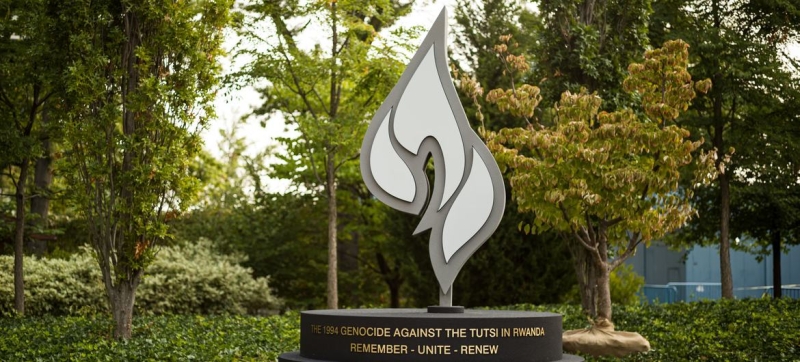
A monument dedicated to the victims of the 1994 genocide against the Tutsi in Rwanda, on the grounds of the UN headquarters. The UN marks the International Day of Commemoration of the Victims of the Crime of Genocide UN
Every year on December 9, the UN marks the day of the adoption of the Convention on the Prevention and Punishment of the Crime of Genocide, the most important international document adopted when the United Nations was created and immediately preceded the adoption of the Universal Declaration of Human Rights.
In accordance with General Assembly resolution A/RES/69/323 of 29 September 2015, this day also became the International Day of Commemoration and Dignity of the Victims of the Crime of Genocide and of the Prevention of This Crime.
“Seventy-six years have passed since the adoption of the Convention on the Prevention and Punishment of the Crime of Genocide,” the UN Secretary-General said in a message dedicated to today’s date. “The Convention was adopted in the wake of the unimaginable horrors of the Holocaust and was a promise to the victims and survivors of genocide to prevent such atrocities from happening again. Tragically, in a world mired in strife, mistrust and violence, the dark specter of genocide still haunts us.”
This year’s commemoration falls between two important anniversaries. In April 2024, Rwanda marked 30 years since the 1994 genocide against the Tutsi, and in July 2025, Bosnia and Herzegovina will mark the 30th anniversary of the 1995 genocide in Srebrenica. This year’s event will focus on the role of efforts to commemorate the victims of genocide and prevent similar tragedies in the future. The experiences of Rwanda and Bosnia and Herzegovina will be used to examine how remembering past genocides plays a key role in prevention.
Remembrance initiatives are inextricably linked to the twin obligations of the Genocide Convention: the prevention and punishment of the crime of genocide. Efforts to establish truth and heal, to build a culture of peace education, social cohesion and respect for diversity, to preserve the memory of the past, to collect testimonies of victims and survivors, to create and preserve archives, and to reduce genocide denial and the glorification of war criminals, all contribute significantly to the fulfilment of these two key commitments.
The need to invest in the prevention of genocide, as envisaged by the authors of the Convention 76 years ago, remains more urgent than ever.
“We must do everything possible to identify early signs of impending danger and to sound the alarm,” António Guterres said in his message. “The best way to honour the memory of the victims and survivors of genocide is to intensify action to prevent this heinous crime.”
